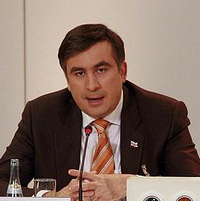Allegations of Russian involvement in a bombing targeting the U.S. embassy compound in Tbilisi, Georgia, have sent diplomatic shockwaves through international policy circles and threaten the Obama administration's carefully calibrated "reset" program with Moscow. While the details of the incident underscore the Caucasus' still-smoldering volatility, they are consistent with Russia's longtime activities in the region.
The reactions were quick and vigorous following Eli Lake's July 22 report in the Washington Times, in which official Georgian sources accused Russian agents of complicity in a September 2010 explosion near the American Embassy in Tbilisi. According to the Georgian Interior Ministry, an Abkhazia-based Russian intelligence agent, Yevgeny Borisov, recruited for and masterminded the embassy bombing as well as a series of other terrorist acts in the country. In response, the Russian Embassy in Washington strongly denounced the charges, calling them "absolutely false and baseless."
While some quickly embraced the article's conclusions as proof of enduring Russian recalcitrance and the failure of the U.S.-Russia reset, other commentators expressed skepticism over the report, which at first appeared to be little more than a rehash of longstanding Georgian claims. Fairly or not, Tbilisi has developed a reputation for blaming Russia as an option of first resort.

